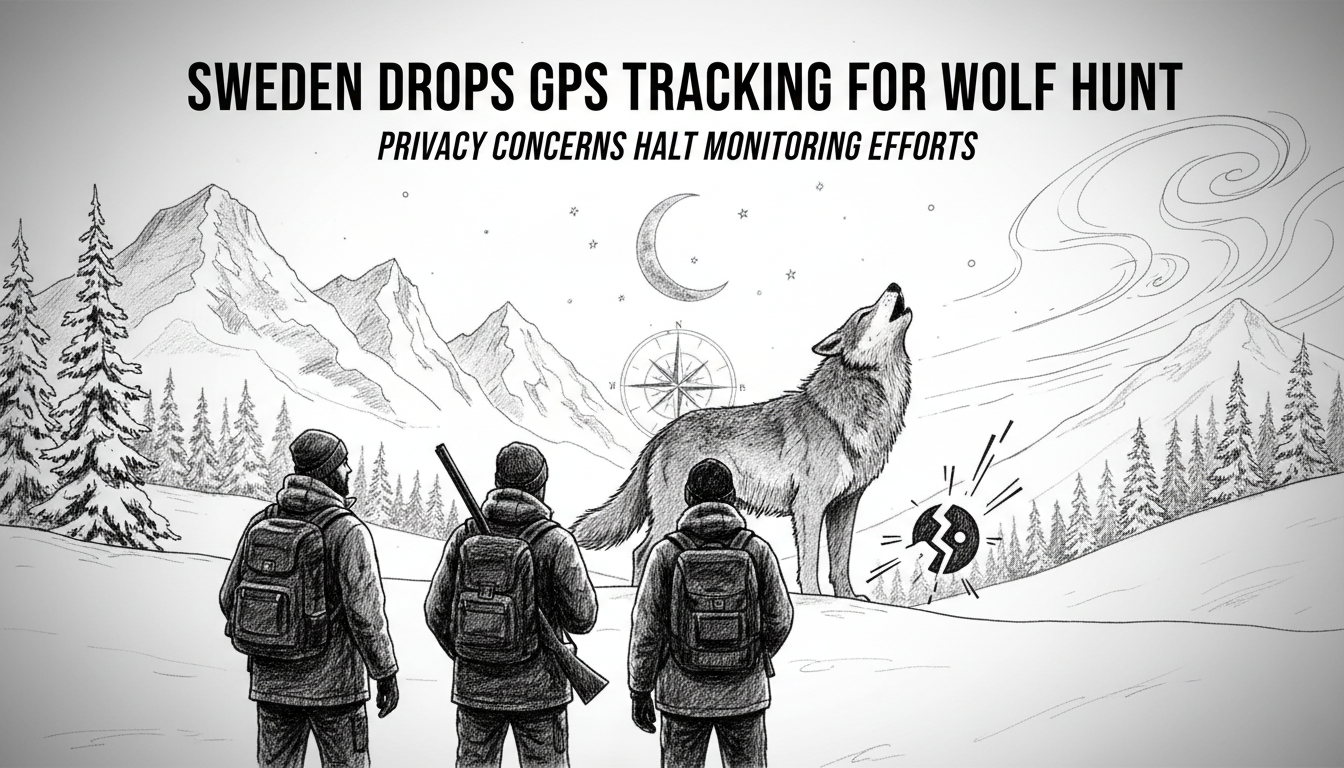Authorities in Western Sweden have reversed a controversial decision requiring hunters to carry GPS devices during licensed wolf hunts. The Västra Götaland County Administrative Board announced the policy change after determining the requirement lacked legal foundation.
The original mandate, established in early November, required all participants in licensed wolf hunts to carry GPS tracking equipment. Officials intended the measure to prevent illegal hunting from vehicles and improve oversight of predator management activities. The decision applied specifically to winter season wolf hunts across Västra Götaland county.
Public backlash emerged quickly following the initial announcement. Critics raised privacy concerns about mandatory tracking of hunters' movements. The county board acknowledged these objections in their reversal statement.
Eva Olsen, department head at the Nature and Water Division, explained the reconsideration. 'We understand this could be perceived as invasive to personal privacy,' Olsen said in an official statement. 'We conducted a review and concluded the requirement lacks sufficient legal support.'
The withdrawal represents a significant development in Sweden's ongoing wolf management debates. Sweden maintains strict regulations around large predator hunting, with licensed culls occurring only under specific circumstances to manage population conflicts.
Despite dropping the GPS mandate, officials emphasized their continued commitment to hunting oversight. 'We must explore other methods to supervise licensed hunts,' Olsen noted. 'Preventing irresponsible hunting and promoting compliance remains our priority.'
This policy reversal highlights the delicate balance Swedish authorities navigate between wildlife conservation and individual rights. Wolf management consistently generates heated discussion in rural Swedish communities where livestock predation occurs. The GPS requirement represented one attempt to increase transparency in these emotionally charged hunts.
International observers should note this reflects Sweden's decentralized environmental governance system. County administrative boards implement national policies while adapting to local conditions. This structure sometimes creates tension between uniform application and regional flexibility.
The decision leaves open questions about alternative monitoring methods. Authorities must now develop different approaches to ensure licensed hunts follow strict protocols. This challenge comes amid ongoing debates about Sweden's wolf population targets and genetic diversity concerns.
Wolf hunting remains one of Sweden's most contentious environmental issues, balancing conservation needs with rural community interests. This latest development demonstrates how technological solutions can raise unexpected complications in wildlife management.

